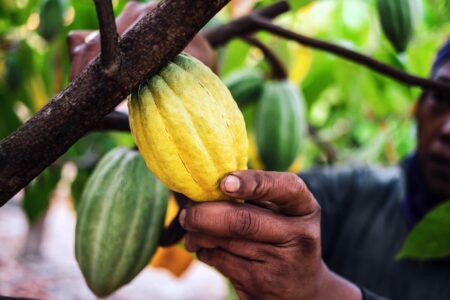Ugandan farmer looks to reverse poverty with new processing plant

A Ugandan farmer who has spent most of his life in extreme poverty is on a mission to reverse poverty in his region by creating a new agro-processing plant that will supply yoghurt and biscuit producers with high-quality cassava flour, reports Rebecca Tee, digital PR specialist, Impression.
Anthony Kalulu turned to farming in 2012 as a way to support his family. A year later he set up a social enterprise called the Uganda Community Farm, in a bid to help other rural farmers in Kamuli, Eastern Uganda.
‘Impatient’ to end extreme poverty in his region, Anthony has launched a fundraising campaign to help raise money for an agro-processing plant which will not only minimise post-harvest food losses, but also create a reliable market linkage for poor, rural farmers.
The intended plant will process six different crops including cassava starch, high-quality cassava starch and threshed and graded cereals, which can be supplied to breweries, paint manufacturers, pharmaceutical companies, adhesive and paperboard industries and yoghurt and biscuit producers.
Anthony said: “The inability for poor, rural farmers to access markets for their produce is the core challenge that keeps every single farmer in our region in extreme poverty. I’m passionate about changing the outlook for our region and believe that, with enough support and funds to support a new agro-processing plant, we can provide a better life for our local farmers and help them become more self-sustaining.
“Part of our plans include creating a cereal/grain sorting, grading and threshing system and a cassava flour production line where we would peel, mill, dewater, dry and package the cassava ready to sell. With cassava flour becoming more popular and making a name for itself in gluten-free baking, it is our hope that we will be able to connect and build long-lasting relationships with yoghurt and biscuit producers in the area.”
The social enterprise will need around $1 million (£774,000) to be able to establish the agro-processing plant and train and provide seeds to local farmers. Anthony hopes that with a larger budget, the UCF will also be able to create a fruit processing facility with an hourly capacity of turning six to eight tonnes of fresh fruit into intermediate products like purees and concentrates, or fresh fruit juice.
Anthony plans to offset the plant’s emissions by creating a large community tree nursery at the plant itself and running a tree seed programme that will source and supply seed to other local reforesters.
The UCF has so far trained and helped over 500 local farmers to produce white sorghum that can be sold to local suppliers. However, the second planting season was disrupted by Covid-19 which made it difficult for the enterprise to distribute seeds.
Anthony added: “This year has been extremely difficult, with the impact of the coronavirus. It has made the poor even poorer, but we are hoping that, with the support of generous individuals and organisations, we can soon begin increasing our efforts here by providing more crops and more means for farmers to make money and support their families.”



